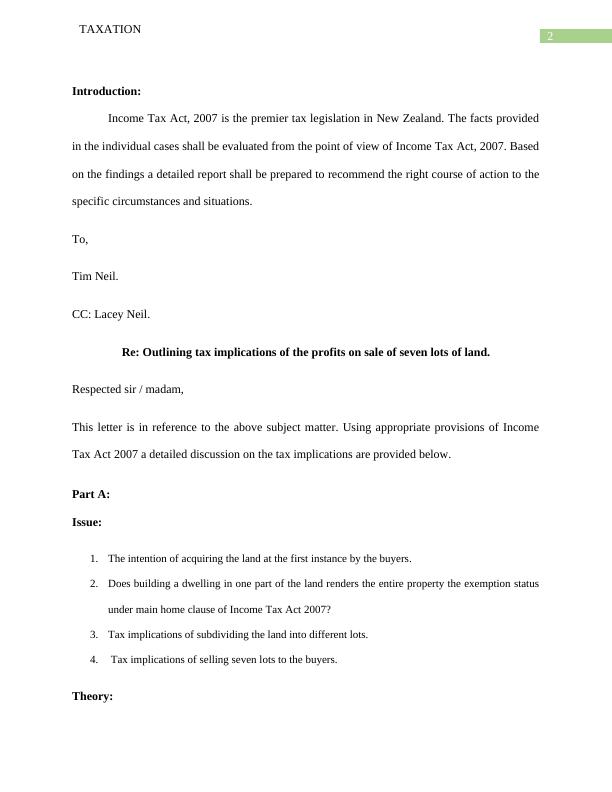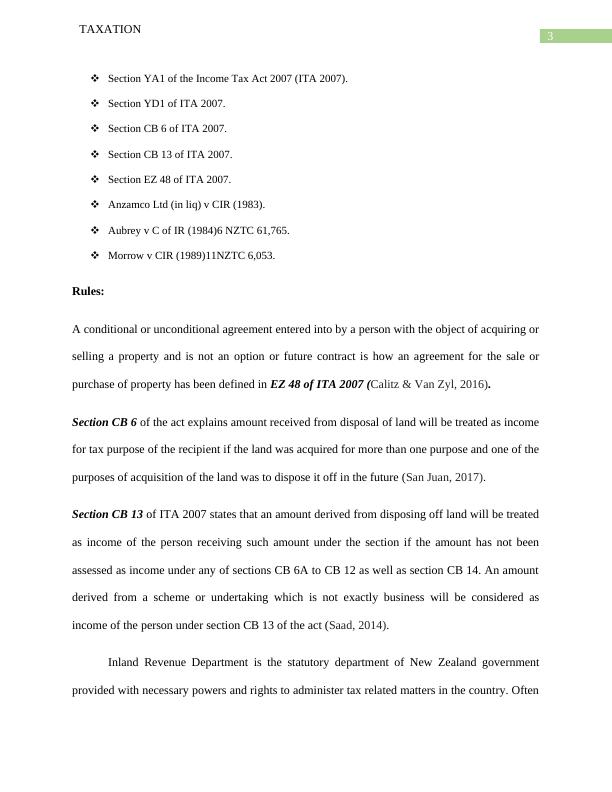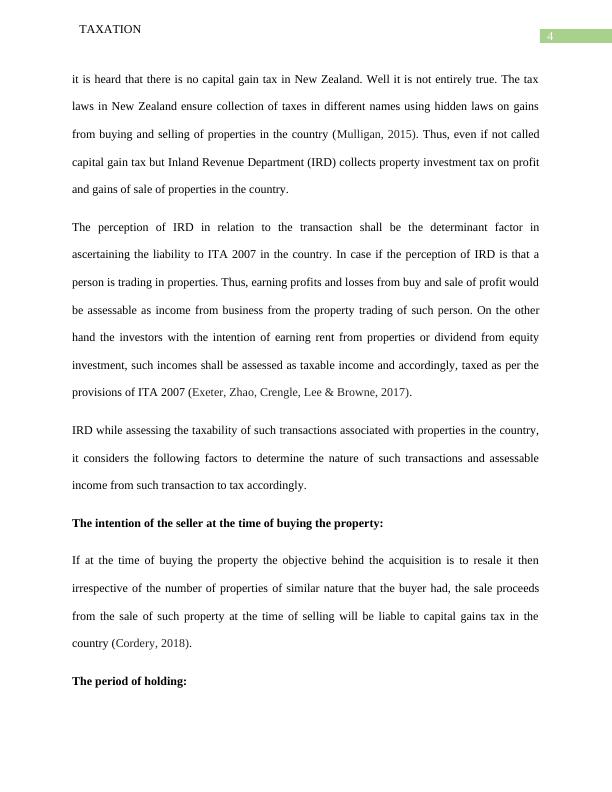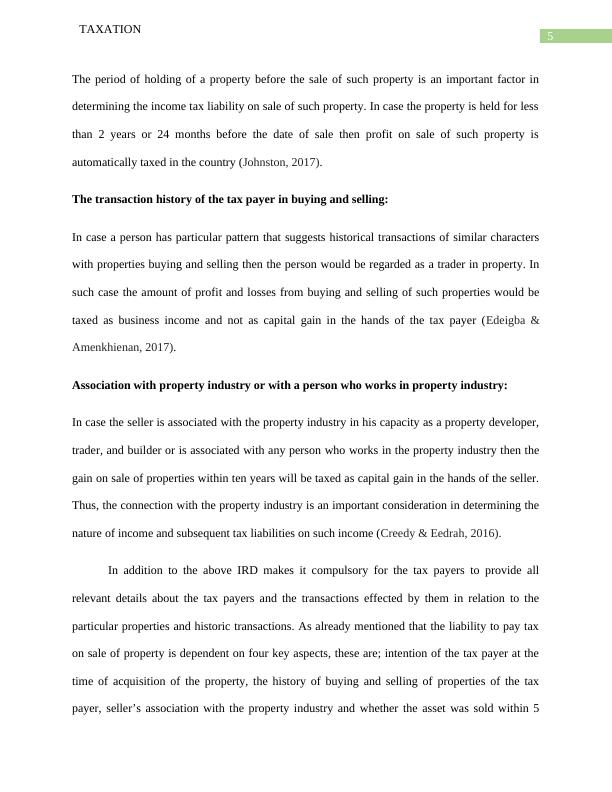Taxation Implications of Sale of Land in New Zealand
Write two letters of advice to capable, intelligent business people requiring clear, practical explanations based on a case study background information.
21 Pages5745 Words105 Views
Added on 2023-06-07
About This Document
This article discusses the taxation implications of sale of land in New Zealand under the Income Tax Act 2007. It explains the factors that determine tax liability on sale of property and exemptions under main home clause. The article also provides a case study on the sale of seven lots of land and the tax implications of the same.
Taxation Implications of Sale of Land in New Zealand
Write two letters of advice to capable, intelligent business people requiring clear, practical explanations based on a case study background information.
Added on 2023-06-07
ShareRelated Documents
End of preview
Want to access all the pages? Upload your documents or become a member.
Theory of the Income Tax Act of 2007
|8
|2913
|197
Taxation Provisions for Land Transactions in New Zealand
|12
|3042
|317
(PDF) Complexity of Tax Simplification
|5
|889
|23
Commissioner of Inland Revenue V Banks [1978] 2 NZLR 472 (CA)
|4
|554
|41
Taxation
|6
|1356
|189
Taxation Theory, Practice & Law: Capital Gains, Fringe Benefits
|13
|3078
|463






